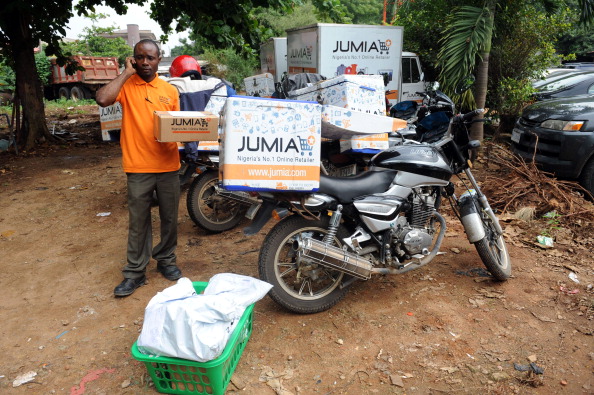
Jumia hopes to raise $200 million with US-based IPO

Shares in Africa’s largest e-commerce retailer are set to start trading in New York on Friday in a move that could pave the way for other tech start-ups from the continent.
Jumia is listing up to 18% of its shares in an initial public operation (IPO), giving it “unicorn” status – a technology start-up worth $1bn-plus.
It is the first tech start-up from Africa to float in New York.
The so-called “Africa’s Amazon” has 4 million customers on a continent where just 1% of retail sales are via online.
Jumia was founded in Lagos, Nigeria, by two French entrepreneurs in 2012 and now offers services to most of the African population, in countries such as South Africa, Tanzania, Egypt and Ivory Coast.
Its largest shareholder is MTN, Africa’s biggest telecoms company.
Jumia set a share price range between $13 and $16 with its updated S1 filing showing the company will offer 13.5 million shares for purchase. Following a roadshow to gauge investor interest, Jumia’s share could raise as much as $216 million if it goes on sale at the highest point of the range.
Depending on investor interest, Jumia’s shares could have been priced above the set range. For instance, Lyft, the US ride-hailing company launched its offering last month at $72 per share after initially setting a share price range between $62 and $68.
Jumia operates in 14 countries, including Kenya, Ghana, Algeria, Angola, and Senegal. The website sells everything from electronics to clothes, and there is a hotel and flight booking site, and a takeaway food delivery platform. In Kenya, Jumia has teamed up with French supermarket giant Carrefour to offer online deliveries.
The number of Jumia customers jumped 48% last year.
The BBC’s Africa Editor, Larry Madowo, said that Jumia was not yet profitable and had accumulated losses of nearly $1bn since it was founded.
Although there are technical and infrastructure hurdles to growing Africa’s online retail market, he said a big selling point was that Jumia accepted mobile money payments across a continent where few people have credit or debit cards.
However, he said Jumia faced tougher competition. “Its initial public offering coincides with the launch of a competing app from global logistics provider DHL allowing consumers in 11 African countries to buy directly from global retailers.
“The DHL Africa eShop brings together more than 200 American and British retailers and will deliver directly to homes, something Jumia has struggled with.”
Erik Hersman, chief executive of Nairobi-based internet and software firm BRCK, said Jumia’s listing sent an important signal to other African start-ups that a major stock market listing was possible.
“It’s an important event in the evolution of the African tech scene,” he told the BBC last month.






